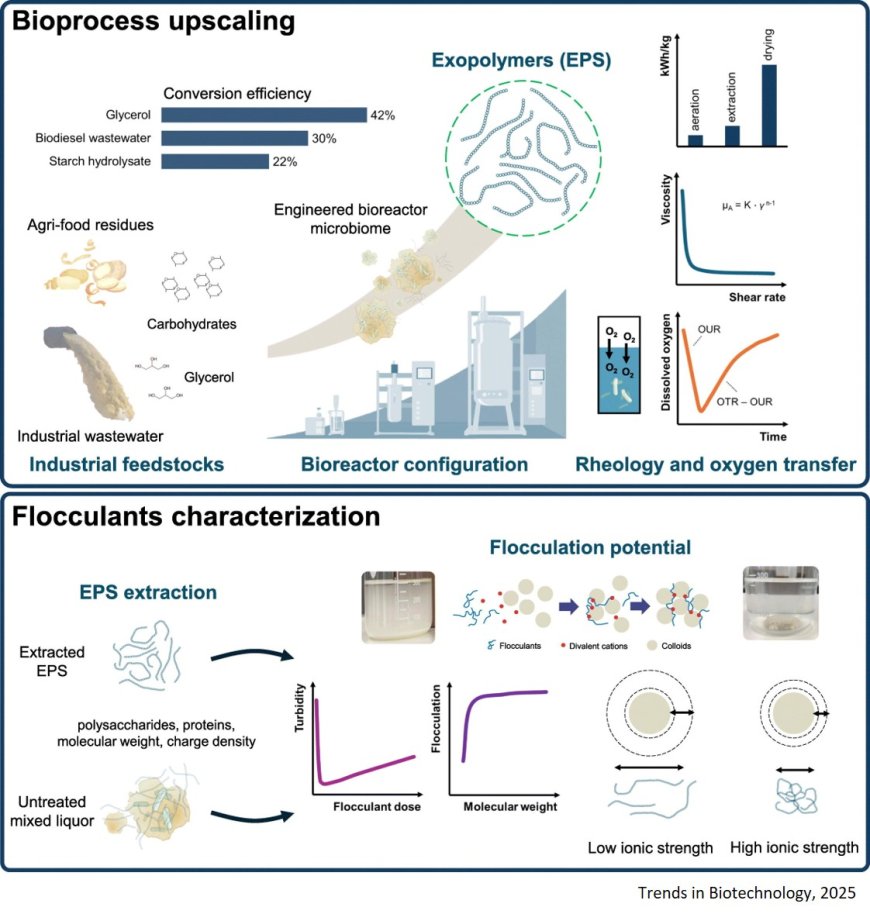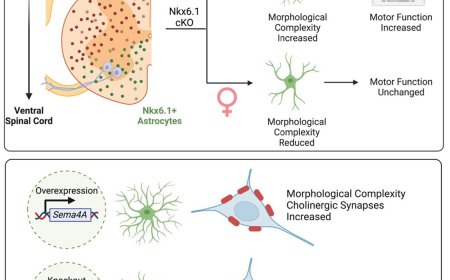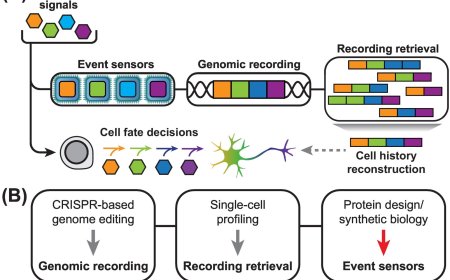Microbial biopolymers from industrial wastewaters

Microbial exopolymers [extracellular polymeric substances (EPS)] produced from waste(water) are emerging nature based, biodegradable, nontoxic alternatives to synthetic flocculants.
High carbon recovery into biopolymers can be achieved through overproduction of EPS from nitrogen-limited waste (water) at limited specific mineralization rates (20–40% COD) from pure glycerol and industrial wastewater.
Production of EPS with net anionic charge and high molecular weight was achieved using actual industrial waste (water) with recovery efficiencies comparable to those obtained with pure cultures and/or synthetic wastewater.
High flocculation potential comparable to anionic polyacrylamide (aPAM) was obtained when using either untreated EPS-rich mixed liquor or extracted EPS therefrom on dual-clay dispersions, with EPS flocculation behavior closely connected to molecular weight.
Differences in viscosity of the mixed liquor had a direct influence in oxygen mass transfer resulting in lower or similar aeration demand to pure-culture production of exopolymers (e.g., xanthan gum).
https://www.cell.com/trends/biotechnology/fulltext/S0167-7799(25)00413-5
https://sciencemission.com/flocculants-from-industrial-wastewaters












